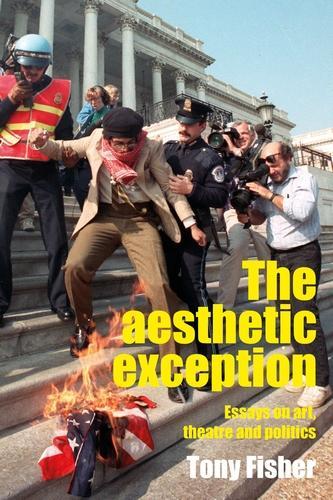
The Aesthetic Exception: Essays on Art, Theatre, and Politics
(Hardback)
Available Formats
Publishing Details
The Aesthetic Exception: Essays on Art, Theatre, and Politics
By (Author) Tony Fisher
Manchester University Press
Manchester University Press
19th October 2023
United Kingdom
Classifications
General
Non Fiction
Literary studies: plays and playwrights
Politics and government
701.03
Physical Properties
Hardback
288
Width 156mm, Height 234mm, Spine 17mm
581g
Description
The aesthetic exception theorises anew the relation between art and politics. It challenges critical trends that discount the role of aesthetic autonomy, to impulsively reassert art as an effective form of social engagement. But it equally challenges those on the flipside of the efficacy debate, who insist that arts politics is limited to a recondite space of autonomous resistance.
The book shows how each side of the efficacy debate overlooks arts exceptional status and its social mediations. Mobilising philosophy and cultural theory, and employing examples from visual art, performance, and theatre, it proposes four alternative tests to effect to offer a nuanced account of arts political character. Those tests examine how art relates to politics as a practice that articulates its historical conjuncture, and how it prefigures the new through simulations capable of activating the political life of the spectator.
Reviews
'Starting with a seemingly simple question Can art be political, this book opens a Pandoras box that reveals the paradoxical nature of the relationship between art and life, the impossibility of taxonomy of political theatre, on the one hand, and its potential as a hermeneutical tool, on the other, and when it comes to postdramatic theatre and theory nothing is anymore as it seemed before The depth of analysis is impressive, whenever we feel we have reached a conceptual stable ground, Fisher probes further and invites us to question deeper!'
Silvija Jestrovic, University of Warwick
'Fisher is a joy to read! He writes with clarity and urgency but without oversimplification and gratuitous polemic. He draws on the whole toolkit of interdisciplinary thought and covers a vast terrain in contemporary theatre, but he never relies on jargon and avoids any form of superficiality with cautious optimism, [he] takes the lead of key artists and heads out towards new horizons of possibility, en route, he has revitalized our understanding of both politics and aesthetics.'
Nikos Papastergiadis, University of Melbourne
Author Bio
Tony Fisher is Reader in Theatre and Philosophy at the Royal Central School of Speech and Drama, University of London
